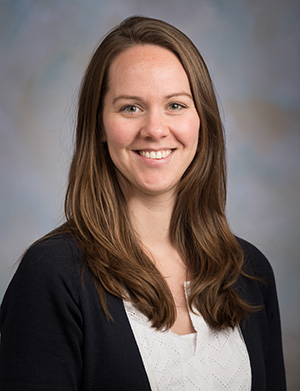Elizabeth Barnes receives National Science Foundation CAREER award
Assistant Professor Elizabeth (Libby) Barnes has been selected for a CAREER award from the National Science Foundation (NSF). The Faculty Early Career Development (CAREER) Program offers the NSF’s most prestigious grants in support of early-career faculty who have the potential to serve as academic role models in research and education.
“I’m incredibly excited,” Barnes said in response to the announcement. “The CAREER offers five years of funding to explore both passions of mine: science and education.”
Integrating education and research is central to the program’s goal. With CAREER, the NSF boosts promising and talented junior faculty toward lifelong leadership and scientific advances in their fields. The awards are granted annually, and the selection process is one of the most competitive within the NSF.
Barnes will use her grant to study causal connections between the Arctic and mid-latitudes.
“I’m particularly excited because I am being funded to work on applying exciting statistical techniques to address questions of causality in climate science – that is – ‘who caused who?’ Or, which came first, the chicken or the egg? I’m specifically going to be studying the links between the tropics-midlatitudes-Arctic and how they communicate with each other and who communicates first.”
Barnes’ project also will create an online database for scientists to utilize and expand.
“I get to bring my love for data science/analysis to the broader community by designing and implementing an online resource for atmospheric sciences that explains and shows examples of mathematical and statistical tools for analyzing data. My hope is that by the end of this award it will function something like Wikipedia, so scientists across the globe can add to it and use it as a resource.”
The Department of Atmospheric Science is well-represented among recipients of this distinction. Other recent CAREER award recipients from the department include Associate Professor Russ Schumacher, Associate Professor Michael Bell and former Associate Professor Thomas Birner.



